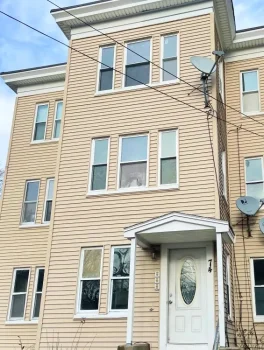
I believe that it would not be too difficult to screen these facilities to see which ones are open to the possibility of working with a team to provide an alternative to residential rehab, and which ones are not. Many sober living owners or managers may be against the idea, choosing to stick to the traditional model, but some are forward thinking, and see Alcoholics Anonymous the possibilities of providing better, and more personalized care. As you can imagine, most sober living residences would not be prepared to facilitate TSM for their clients. The main issue is that, even if they are accepting of the treatment that involves continued drinking, there may be concern that TSM would interfere with the sobriety and recovery of people following an abstinence protocol. Likewise, in the past, sober living homes were not known to be Suboxone friendly.

A Complete Guide To Sober Living Homes
Each resident likely understands what you went through and the different aspects of the recovery process, making them great resources to learn from and connect with on your sobriety journey. As you spend more time in a sober living home, you may feel that your housemates have become your family. Inpatient rehab encourages change, growth, education and involvement in treatment and therapy as well as support to help patients overcome the challenges that they face in restoring stability and balance into their lives. At New You Sober Living, we can provide you with the support and structure you need to ease the transition from living in a facility to independence. In most cases, it’s best to go from a sober house vs rehab residential treatment program into a sober living community.
How to Tell if a Sober Living Program or Residential Treatment Is Right for You

Recovery is not a one-size-fits-all process; many individuals https://ecosoberhouse.com/article/how-to-overcome-alcoholism/ need additional support after completing rehab. Sober houses create an environment that encourages accountability, mutual support, and personal growth. While rehab provides intensive, professional care in a controlled environment, sober living offers a more independent setting with peer support. The choice between the two often depends on the individual’s stage in recovery and specific needs.
Sober Living Programs for After Drug & Alcohol Rehab

Local zoning laws may impact where sober living homes can be situated and their operational conditions. These laws often regulate the proximity of sober living homes to schools and parks and may limit the number of residents per home. Despite the out-of-pocket costs, the investment in sober living can be economically beneficial in the long run.
- These homes provide a safe and supportive space for individuals to transition back into daily life.
- Think of sober living as your support net as you practice new skills, gain new insight and shape your new life in recovery with other people who are possibly facing the same challenges.
- They provide a supportive, safe space where people can live free of addiction with others who share the same goal.
According to the article, The 5 Stages of Treatment, inpatient rehab is the most intensive form of rehabilitation. Therapists work with fragile clients to form a sense of safety and help the individual understand how addiction has dominated and damaged their lives. Individuals in rehab participate in learning healthy lifestyle habits, as well as individual, group, and family therapy. A sober living home is a residential facility that provides a drug and alcohol-free environment for individuals recovering from addiction. These homes operate as a sanctuary for those who have completed treatment at a rehabilitation center and are seeking a supportive community to continue their recovery journey. Finding the right sober living environment is crucial for continued recovery.


Additionally, seeing these experts in rehab may not provide any additional benefit to the rehab client. Unless the doctors who say clients and Rehab are prepared to provide proven medical therapies, it’s questionable whether their services will contribute to long-term recovery from addiction. The services provided at most rehabs are not proven to be of long-term benefit to many of the client to check in. Most staff members of a residential rehab or certified addiction counselors, but rarely do clients in rehab see a doctor of psychology, a doctor of psychiatry, or even a registered nurse.